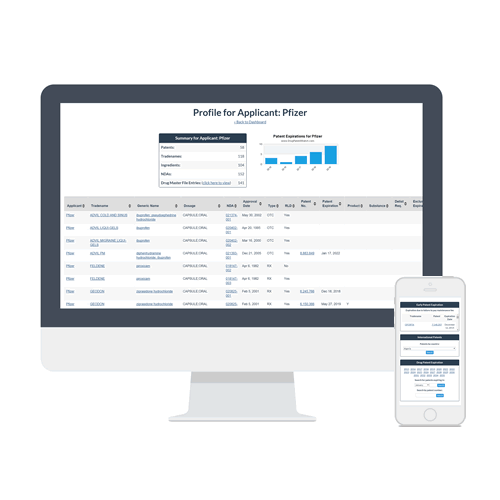The first generic drug to make it to market after drug patent expiration enjoys a significant market share advantage over later arrivals. Furthermore, market share advantage – which can be up to 90% – holds for at least three years.
Generic drug success depends heavily on wholesaler and pharmacy drug purchases, and being first to market is advantageous.
 Researchers Yu Yu and Sachin Gupta from the J. Mack Robinson College of Business, Georgia State University and Samuel Curtis Johnson Graduate School of Management, Cornell University also found that the first mover advantage is greater if the first mover makes it to market a month or more before the next generic competitor. Their findings were reported in a paper titled “Pioneering advantage in generic drug competition,” published in the International Journal of Pharmaceutical and Healthcare Marketing in 2014.
Researchers Yu Yu and Sachin Gupta from the J. Mack Robinson College of Business, Georgia State University and Samuel Curtis Johnson Graduate School of Management, Cornell University also found that the first mover advantage is greater if the first mover makes it to market a month or more before the next generic competitor. Their findings were reported in a paper titled “Pioneering advantage in generic drug competition,” published in the International Journal of Pharmaceutical and Healthcare Marketing in 2014.
This first mover phenomenon is particularly important because generic drug makers are experiencing shrinking margins due to increased global regulatory enforcement, increased raw materials costs, and rising competition. With many drugs facing patent expiration in 2019, and even more facing their NCE-1 date (the first date on which an ANDA applicant may file for a generic version of the drug), speed to market is going to be critical to generic drug makers in coming years.
Post-Patent Pharmaceutical Markets Unique
The pharmaceutical generics market is different from other markets for generic products because generic pharmaceutical offerings are essentially undifferentiated. They must all adhere to strict FDA standards, and hence competition is largely based on price. But the generic drug with enough speed to market to get there first enjoys advantages due to the way in which retail pharmacies and wholesalers behave. For consumers, “choice” of generics is mostly a function of which generic their pharmacy carries, and there’s usually only one for a given branded drug.
What wholesalers want from generics are things consumers don’t think about, such as the manufacturer’s liability insurance, reputation, history of product recalls, and the net profit margin they offer. Likewise, retail pharmacies that buy directly from generic drug manufacturers look for availability, regularity of supplies, quick delivery, and favorable buy-back policies for unsold product. The first mover advantage comes primarily from locking into wholesaler and retail pharmacy contracts.
Switching Costs Matter to Wholesalers, Retail Pharmacies
Costs associated with inventorying and stocking new products makes pharmacists reluctant to switch generic drug providers.
 For wholesalers and retail pharmacies, the costs associated with switching between generic drug manufacturers make them want to stick with the same supplier if possible. While price is a concern, it is more in relation to third-party payers that put upper bounds on reimbursement rather than consumers’ price concerns.
For wholesalers and retail pharmacies, the costs associated with switching between generic drug manufacturers make them want to stick with the same supplier if possible. While price is a concern, it is more in relation to third-party payers that put upper bounds on reimbursement rather than consumers’ price concerns.
Switching from one generic drug manufacturer to another involves the costs of stocking and inventorying new products, and if the first available generic meets a wholesaler’s or retail pharmacy’s needs, there’s little reason for them to switch to another generic manufacturer. Hence, the first mover advantage is strong.
First Mover Advantage Sizeable
According to Yu and Gupta, the first generic entrant into a market has an 80% market share advantage over the second entrant, and a 225% market share advantage over the third entrant. Moreover, these advantages last for at least three years.
The first mover advantage is even more significant when the first generic product makes it to market one month or more before subsequent market entrants. In these cases, they can enjoy a 90% market share advantage. The advantage is almost entirely due to the way in which wholesalers and retail pharmacies buy generic drugs, and negligibly due to factors like advertising and pricing. In short, it is the first-to-market generic drug that benefits most from market entry, particularly if it can beat subsequent generic drug entrants by at least a month.
Generic drug markets don’t behave the way other types of generic markets behave. They’re less influenced by consumer choice than by the buying habits of the wholesalers and pharmacies that get the drugs from manufacturers to consumers. These buying habits and reluctance to switch manufacturers confer a major first-mover advantage and make speed to market a key determinant of how well a generic drug will perform in the marketplace.


